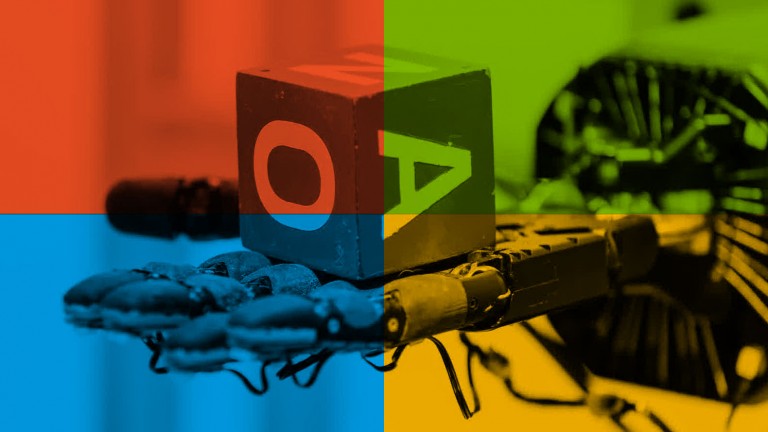The AI lab gets to throw Microsoft’s supercomputing and cloud computing muscle at its bid to build artificial general intelligence (AGI).
The news: Microsoft says OpenAI will help it jointly develop and train new AI technologies for its Azure cloud computing service. It will also work with it to develop new supercomputing hardware to try to achieve AGI—machines with the capacity to learn tasks the way human beings do. That’s a holy grail of AI that still remains (and may always remain) out of reach. OpenAI’s founders, which include Elon Musk and other tech leaders, reckon AGI could help solve longstanding challenges in areas that range from climate change to health care.
Show me the money: Since it was set up in 2015, OpenAI has developed AI that’s sought to defeat human players at games like Dota 2 and frighteningly effective language AI, among other things. It began as a nonprofit research lab with the mission of developing safe AGI, but AI models need mountains of data to crunch, and that requires huge amounts of expensive computing power. So earlier this year, OpenAI set up a new for-profit arm to help pay for its work. (OpenAI calls its model “capped profit” because investors can achieve a maximum of 100 times return on their investment. Still, not bad.)
Go big or go home: The investment is part of Microsoft's new strategy and will help the firm keep pace with rivals like Google, Facebook, and Amazon, which have all spent big on AI in recent years.
While many AI researchers believe AGI is unachievable, OpenAI may be hoping to reach it by massively scaling existing deep-learning approaches rather than by developing new ones. There’s no guarantee that throwing more brute computing power at the problem will crack it, if it can even be cracked, so Microsoft’s billion-dollar bet is definitely a risky one.
Sign up here for our daily newsletter The Download to get your dose of the latest must-read news from the world of emerging tech.

